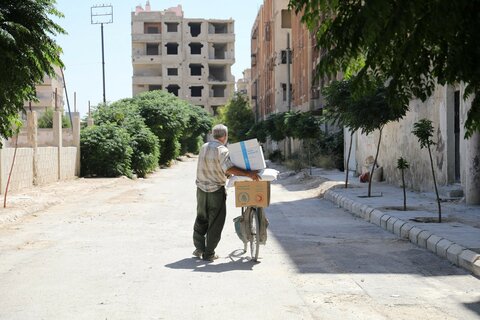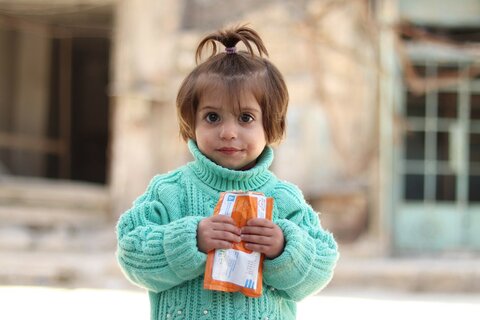‘Conflict of sounds and smells’: A blind couple in Syria look to a better future
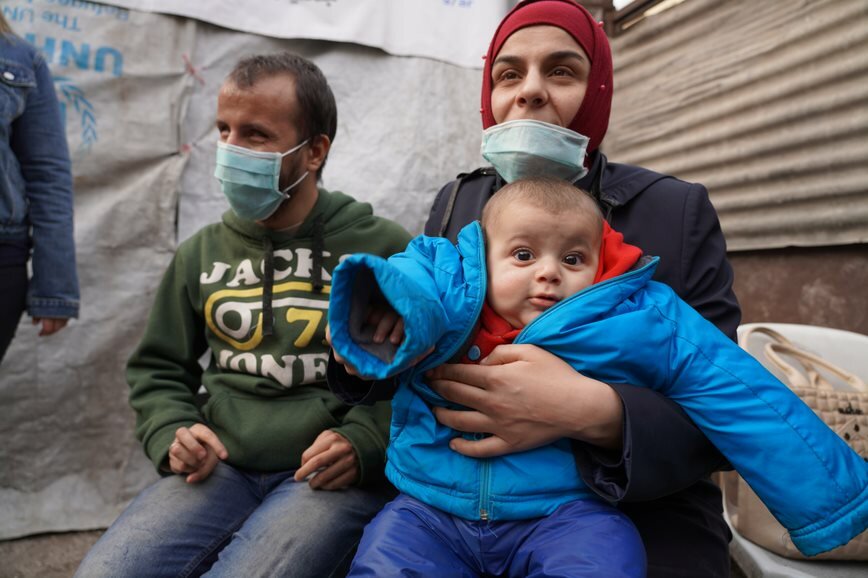
Syria is a country filled with stories — of conflict, destruction and, increasingly, a lack of hope for the future. It’s no wonder. Over the past ten years, conflict has turned the lives of millions of people upside down.
Rania and Abdallah’s story is inspiring. It reminds us all that even in a city’s darkest moments there are people who stubbornly refuse to give up and let tragedy define their lives. Instead, they are doing everything possible to build a better life for their son.
Window on Syria: A WFP photographer looks back at a decade of conflict
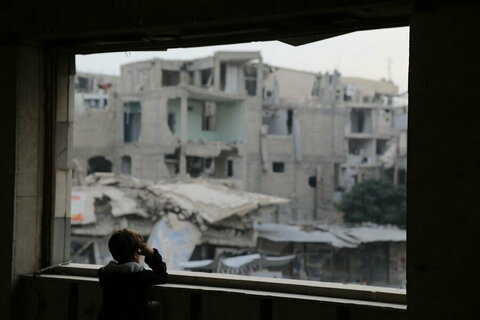
We first met the family at a World Food Programme (WFP) distribution point in Aleppo — they are among 4.8 million people in Syria that WFP reaches with assistance each month.
As they waited patiently for their turn, their 7-month-old Mohammed grabbed everyone’s attention with his gorgeous smile. After chatting with them for a couple of minutes, it was clear that this was a couple with an extraordinary story.
“I fell in love with her the moment I heard her voice, and I wished she would become my life companion,” says Abdallah of his wife. “When I knew she was an educated person, I loved her even more. I asked for her hand in marriage and here we are, living under the same roof.”
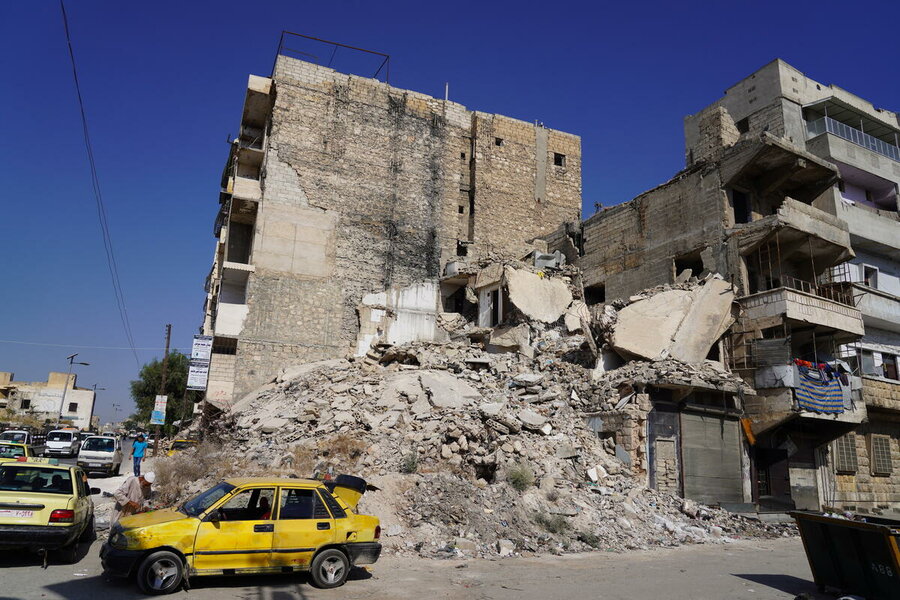
Abdallah was born blind while Rania has 1 percent vision. Their son is not visually impaired. The couple have lived in Aleppo throughout the conflict and today receive WFP support for their basic needs.
“I love nature and sounds of birds,” says Rania. “I can distinguish colours to a very small extent, so I love greenery and spacious areas, where you can smell grass.”
Abdallah says: “I could never ‘see’ life, but I can imagine it from sounds, the smell of the ground, flowers and the shapes and textures of things that I touch. I could form a picture in my head, and I can feel when a place is pleasant.”
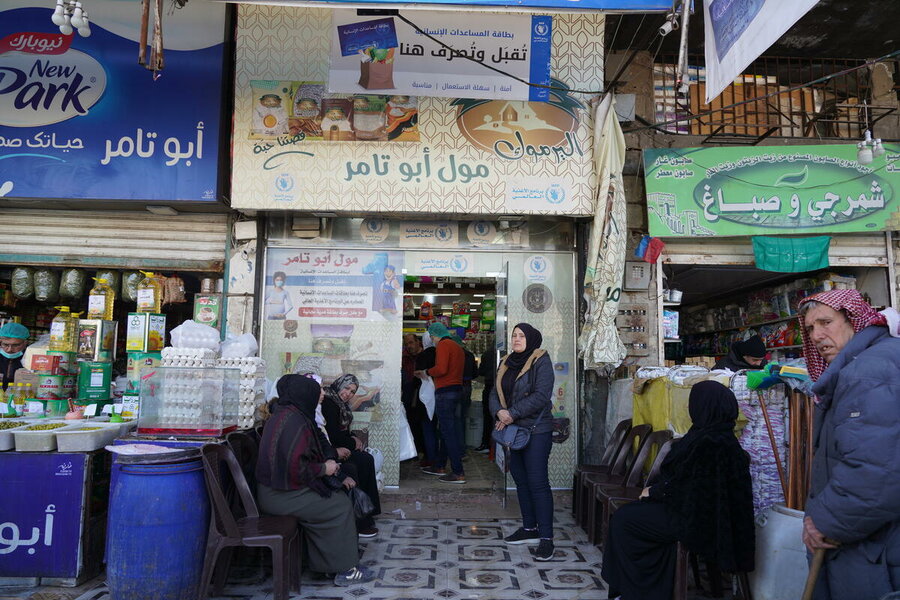
While many families mourn the loss of Aleppo’s beauty, having seen the city they love destroyed, Rania and Abdallah paint a shocking picture of enduring a conflict through what they’ve heard and sensed.
“When mortars were falling, the sounds were terrifying,” says Rania. “Those seconds of silence afterwards were the deadliest feeling I have ever experienced. Then we would start hearing screams of passersby who might have been injured.”
She adds: “The smell of blood was there with every shelling incident. It is something I never imagined I’d witness in my own country and calm city. As we are not distracted by vision, I think the shaking of our house during the shelling was even stronger for us.
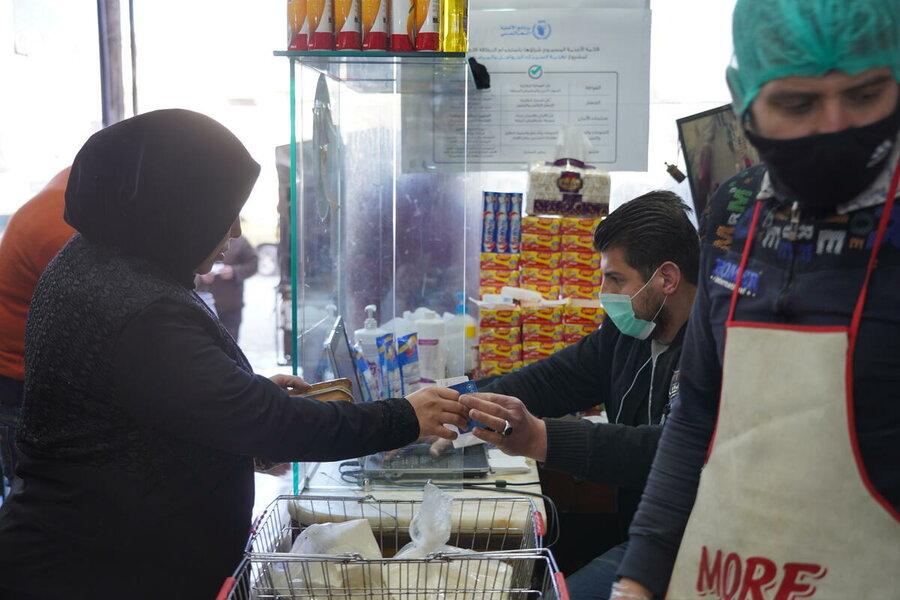
“Now, while walking with Abdallah sometimes, we smell dust a lot. We feel rocks under our feet, so we know there is a destroyed building nearby. We feel shattered glass on the ground when we step on it, and it breaks our hearts.”
Abadallah says: “Death was everywhere. The sounds of clashes were very strong. That was not easy to hear.”
Both Rania and Abdallah’s families had reservations about them marrying and starting a family as Aleppo’s conflict began to cease, questioning their ability to look after themselves. But they did just fine.
Syria: ‘If it wasn’t for WFP’s airdrops, we would have died’
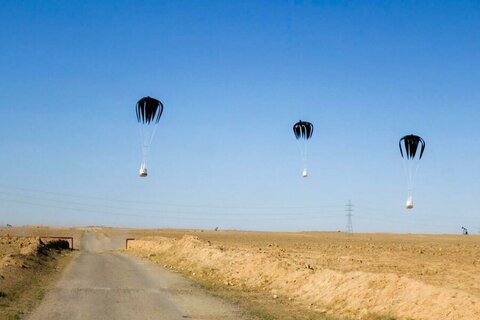
Abdallah now works part-time as an X-ray laboratory technician in a hospital — a job he needs to perform in a dark room. “No one is better than me working in a dark place,” he says. “The best part in my work is when I process an X-ray image for an emergency case. I feel that I am helping someone in urgent need.”
When Rania became pregnant, they were already receiving food each month. They also registered to receive an electronic card that supports pregnant and nursing mothers to buy nutritious food from local retailers. “The e-voucher was really helpful. I was able to buy things we can’t usually afford, like dates, chicken and cheese,” says Rania. “Those foods are very expensive now.”
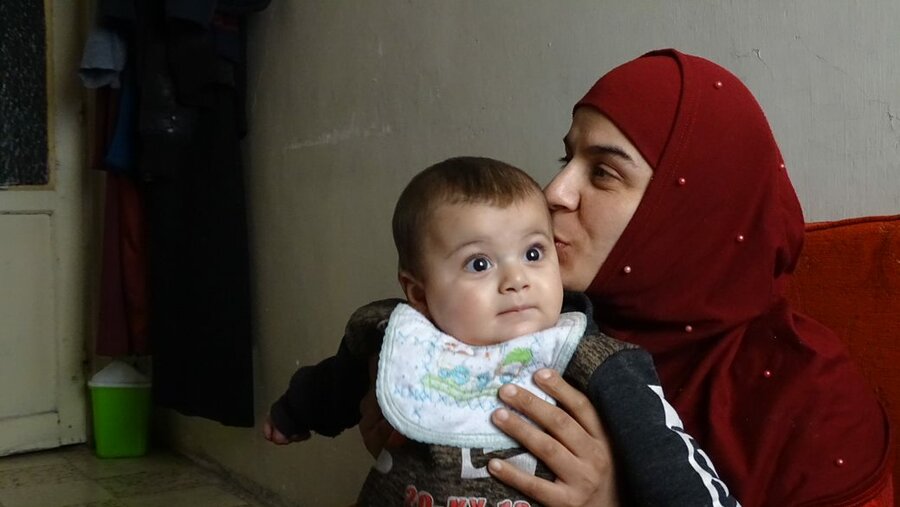
Abdallah says: “I was a bit concerned about how to deal with him at the beginning, when he might be sick for example, but then it turned out to be easier than I thought.”
He adds: “We love the city, and we love the fact of having each other standing side by side and facing all challenges of life.”
When asked about hopes for the future, Rania answer is unexpected: “As strange as it might sound, but we really don't want to see anything now,” says Rania. “We want to keep the beauty in our heads. We would regret seeing the destruction and the changed faces of people who’ve suffered a lot from the devastation. It might be a blessing not to see all the damage that happened, to living and non-living things.”
The World Food Programme’s work in Syria is made possible thanks to generous support from the European Union, which enables families to access lifesaving assistance each month.

